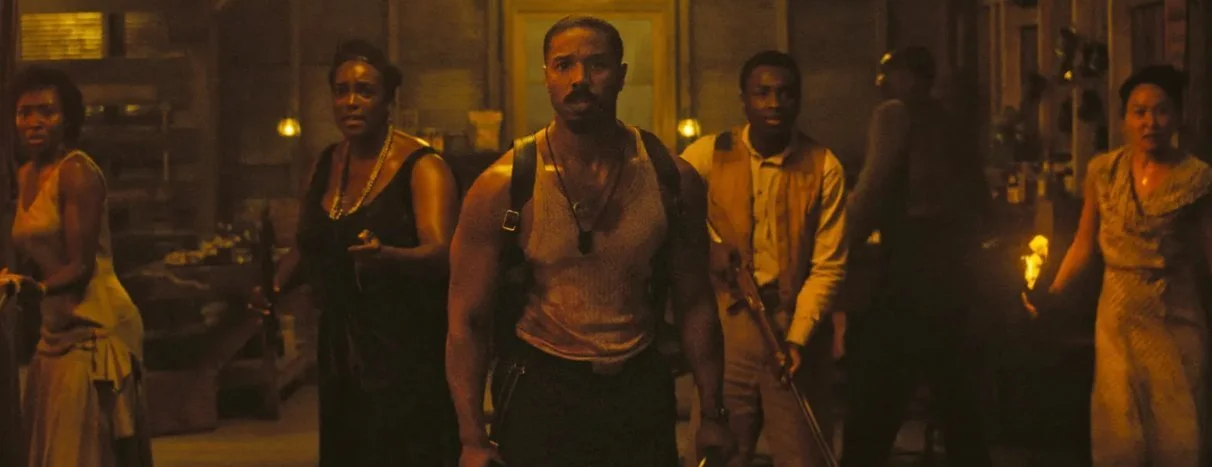Recent think-pieces from Eric Kohn and Adrian Horton make the case against sex disappearing on the big screen.
This all started when “You” star Penn Badgley said that he no longer wished to act in sex scenes. This got the Twittersphere going, and the reaction was wholly predictable: a stance against on-screen sex, with some expressing distaste at any on-screen nudity, or “asserted that most sex scenes are gratuitous, unnecessary and rife with issues of consent.” Horton elaborates further:
This line of thinking is, to be clear, absurd, and admittedly much of the dreaded “sex scene discourse” is classic Twitter behavior, ie morality circle-jerking or over-dunking on easily dunkable takes. But it is concerning insomuch as it reaffirms Hollywood’s pivot away from sex on-screen and the sexlessness of culture in general.
When you start taking into account the recent, and weird admission, that the kissing shot that closes Netflix’s “You People” was CGI-constructed, you start to wonder what in the living hell is going on here?
Horton, again:
“[There is a] scolding attitude to eroticism on Twitter – it all feels apiece with the depressing decline of the Hollywood sex scene (and, as some have argued, the decline of young Americans having actual sex).”
The death of the sex scene might be due, in large part, to the decline of the adult mid-budget drama, sbut it doesn’t differ from the fact that the Puritanism seeping through today’s culture is very much for sex-less behavior.
This backlash to sex scenes comes amidst the rise of on-set intimacy coordinators. Kohn seems distraught by the overall shift in on-screen sexuality:
In a post-MeToo era, the public discourse around consent tends to yield concerns of liberal censorship. Everyone’s so focused about what they can or can’t ask people to do that they stop asking them to do much at all.
When compared to their European neighbors, maybe Americans are indeed getting squeamish about sex. There’s sexual politeness, and politicking, to the sex-based movies being released this decade, so much so that they tend to completely neglect actual on-screen eroticism in favor of socio-topical resonance.
In the ‘80s and ‘90s, the erotic thriller was all the rage. It’s a genre that is all but dead today. There has been a decline in eroticism and sexuality for almost a decade now at the movies. It’s not just that, the #MeToo movement has brought about a ton of pressure on directors, in terms of how to depict sex in non-offensive [and safe] ways.
It's become much harder for a male director to depict sex on screen without being accused of using his own "male gaze.” Even the emergence of gay cinema has barely gone past a few seconds of tame sex, such as in "Brokeback Mountain" and Timothee Chalamet's love for a peach and Armie in "Call Me By Your Name."
Ann Hornaday's insightful piece on the lack of sex in today's movies felt like an oasis to me. I've been been sounding the alarm on the decline of eroticism and sexuality for a few years now.
There is a ton of pressure on directors to depict sex in a non-offensive ways. Filmmakers that were experts at on-screen steaminess, such as Adrian Lyne, Jane Campion, Paul Verehoeven, and David Lynch, have parted towards Europe.
Sex provocateur Paul Verhoeven has also been a critic of Hollywood’s puritan take on coitus in cinema, and his reaction to today’s lack of eroticism is dead-on:
“Sex is the essence of existence! Without it, there are no species anymore. So why is that a big secret? There is a new purity [at the movies].”
“Sexuality has been moved out of movies […] In the 1970s you could talk about it. But you arrive now, decades later, and those movies are not possible anymore. It would be very difficult to make a film like ‘Showgirls’ or ‘Basic Instinct’ now.”
He’s right. Storytelling can be sexy and sensual, depicting human fragility or triumph in ways that sometimes words cannot convey. Stripping sex out of movies can sometimes deny the most human of needs.
Hollywood creatives are now too focused on what can and cannot be done within the confines of the current climate, to the point where their overall vision gets meddled for a more puritan outlook on human emotion.






